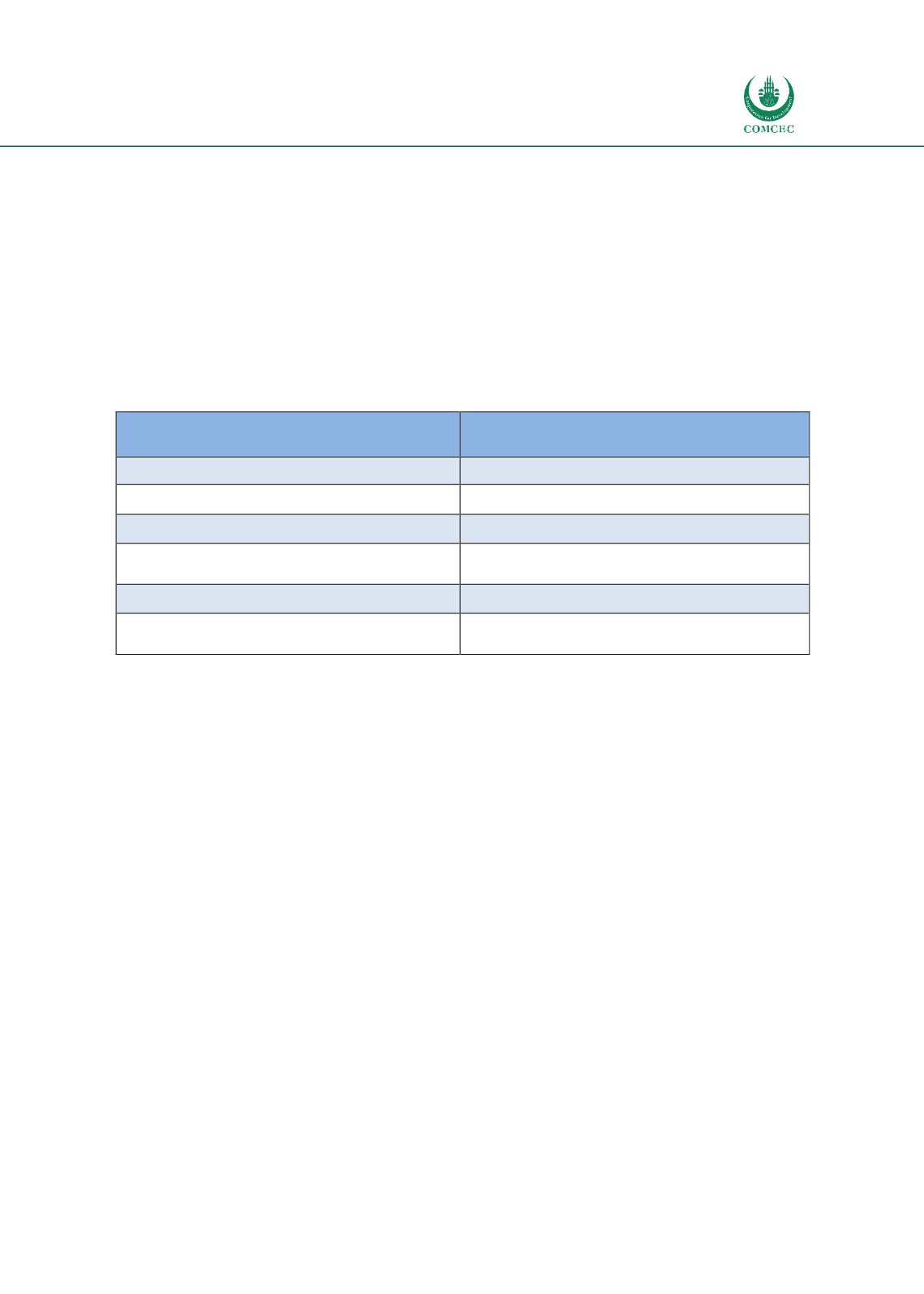

Authorized Economic Operator Programs
In the Islamic Countries:
Enhancing Customs-Traders Partnership
91
Private Sector Perspective
The AEO program aims not only to enhance international supply chain security but also to
facilitate legitimate trade. To be precise, AEO holders get considerable benefits from reduced
costs and expedited processes in daily transport, export and import operations in terms of
labor and time.
Due to increasing importance of foreign trade and Customs matters, budgetary appropriations
to training, auditing and self-control of the employees have increased considerably in the AEO
holder companies.
Table 4.5. Trade Facilitation Benefits of the AEO Program
Facilitations for all AEO holders
Facilitations for AEO holders with
additional conditions and/or applications
Summary declaration with reduced data
Local clearance in exporting
Fewer documentary and physical controls
Local clearance in importing
Control priorities
Authorized consignor
Submission of incomplete declaration and
documents
Authorized consignee
Using lump-sum and partial guarantees
Issuing
A.TRcirculation documents
Green-line facilitations (including on free
alongside ship declarations)
Issuing EUR.MED invoice declaration
Source: Authors’ own compilation from Ministry of Trade
Some important indirect benefits of the AEO status are visible improvements in the internal
control, security and safety of the company premises, IT systems and archives as well as the
development of related new software.
4.2.3. Implementation
In the Ministry of Trade, Directorate General of Risk Management and Control, the “Trade
Facilitation Department” is in charge of the implementation of the AEO Program in Turkey.
The AEO program is promoted through the website of the Ministry of Trade, manuals and
brochures (printed and online) and online promotional videos.
4.2.3.1. Application
In Turkey, the application procedures start with companies that request certification by
applying to the Regional Customs and Trade Directorates of the place where they operate
(Figure 4.3). The following documents have to be present at the time of application: the
application form, the self-assessment questionnaire, the criminal record certificates of top
management and Customs related employees, self-certification of top management and
Customs related employees, tax-clearance certificates, certified public accountant reports and
certificates of ISO 9001 and ISO 27001.
















